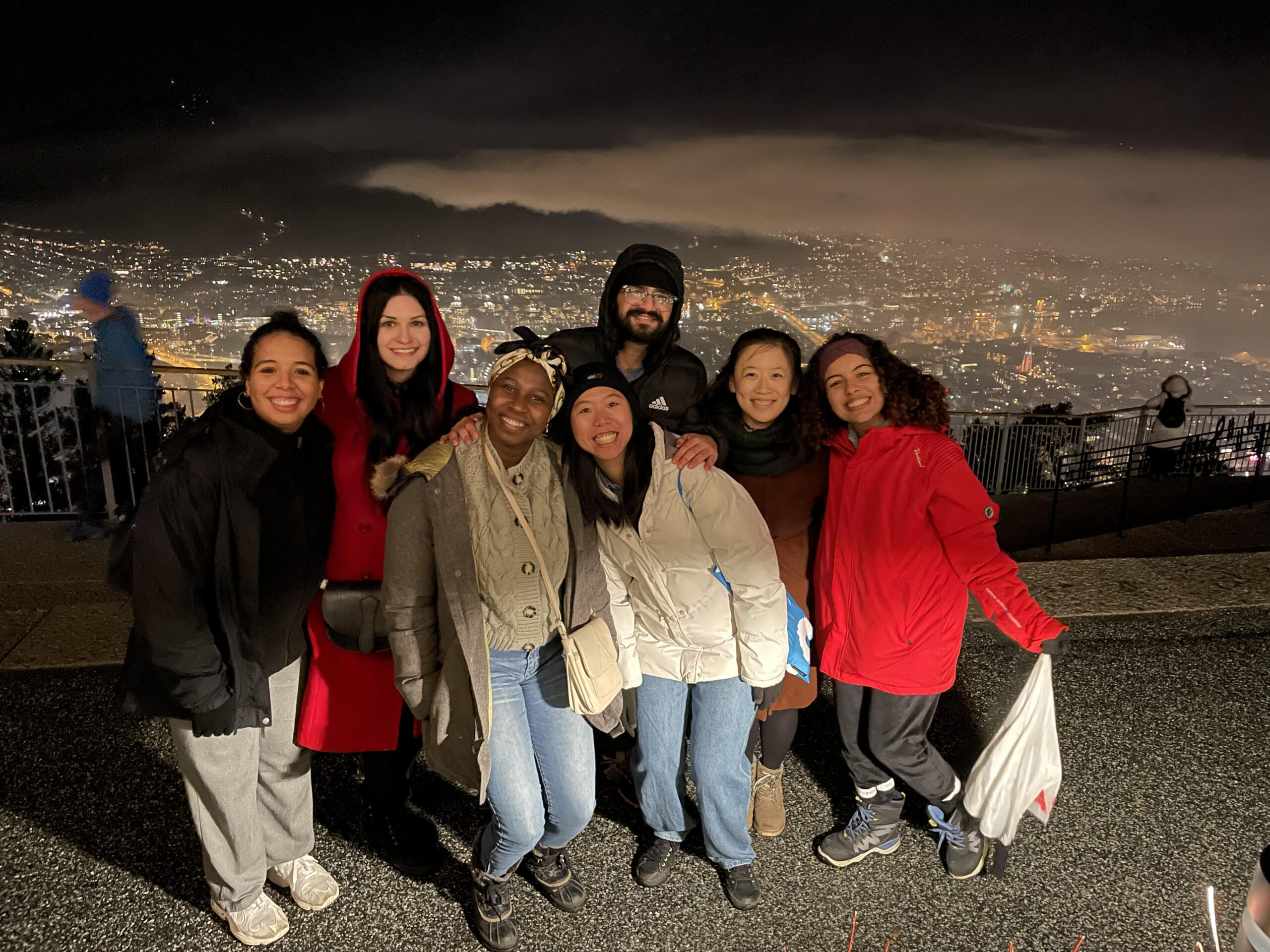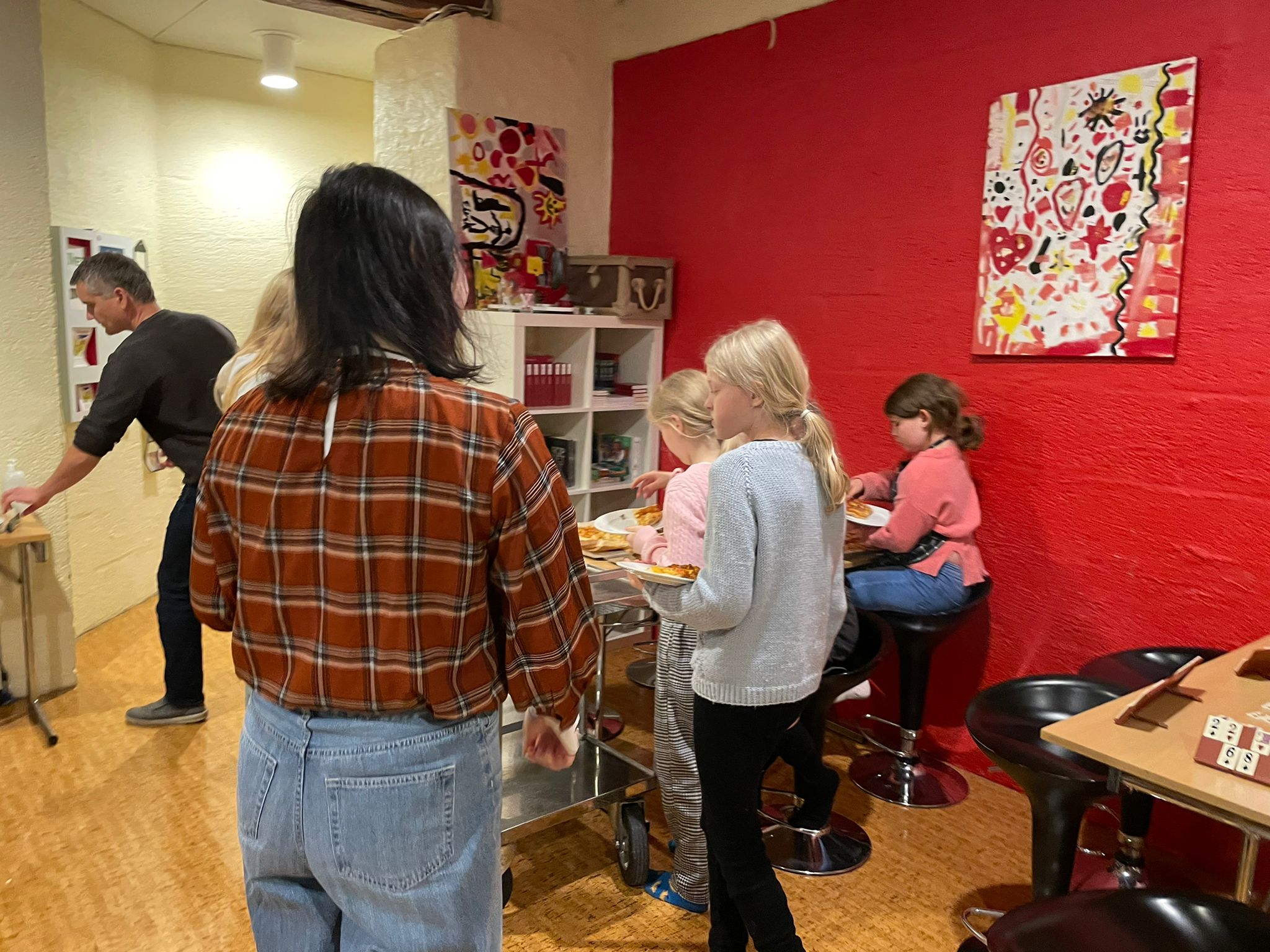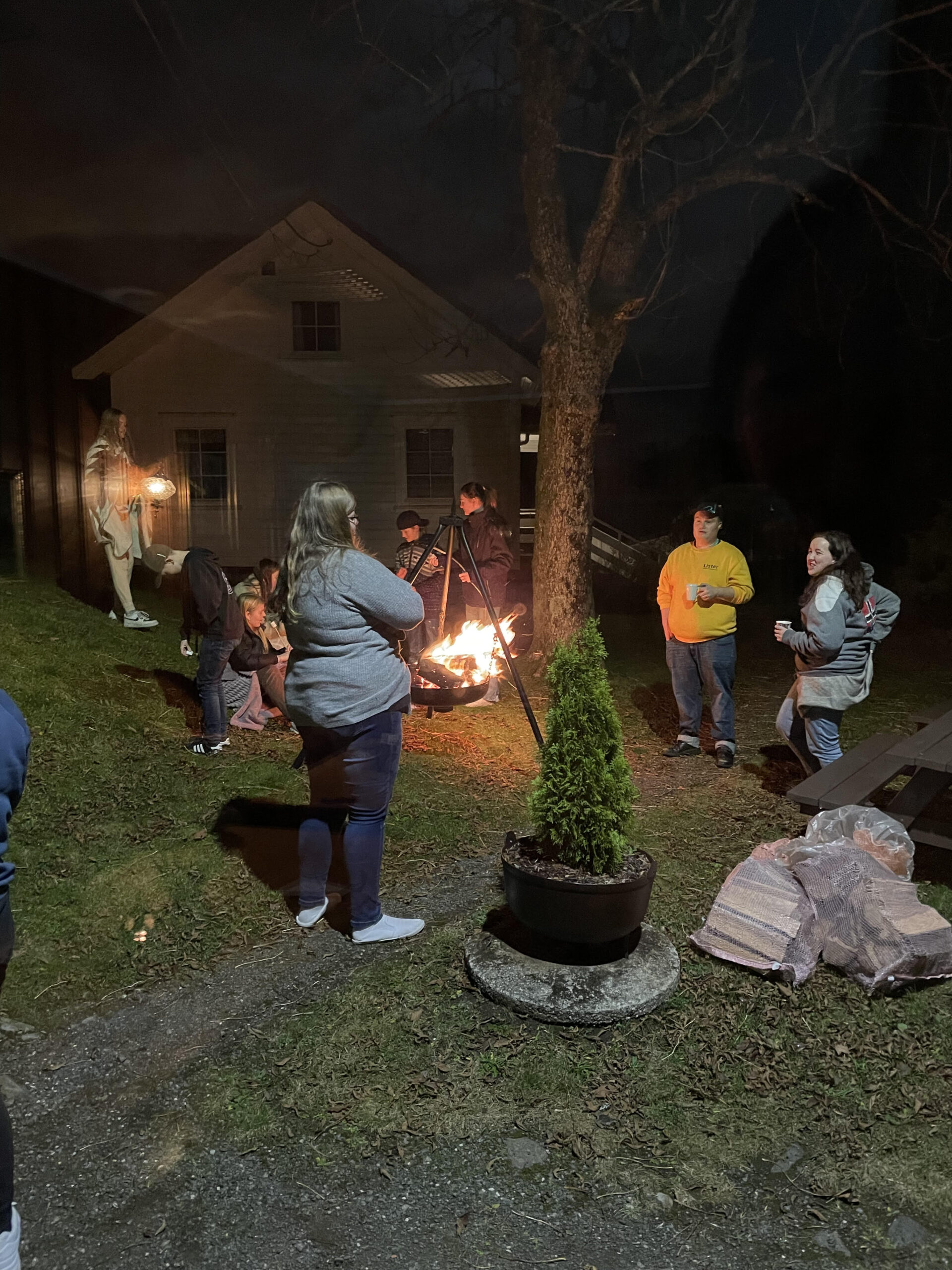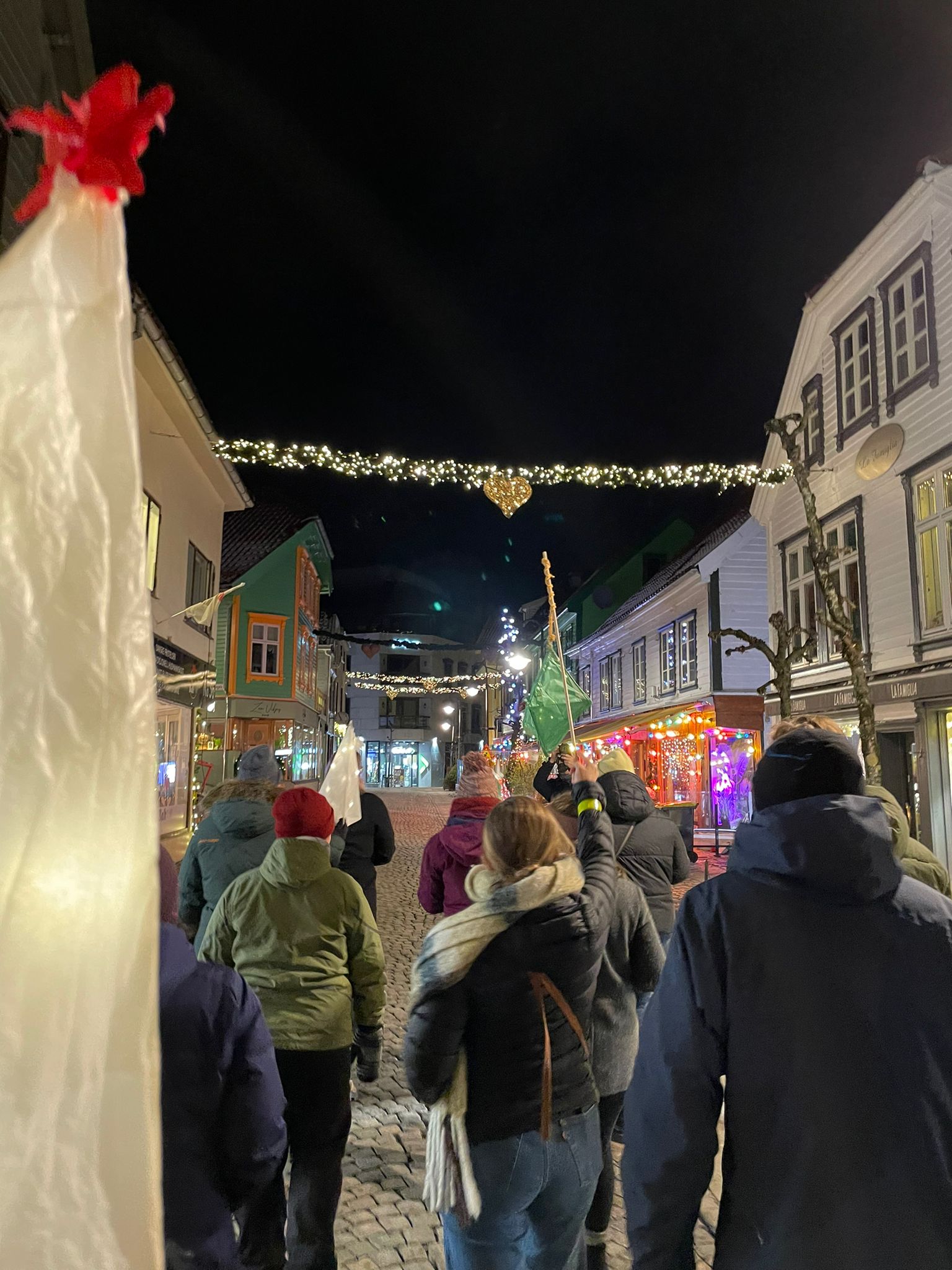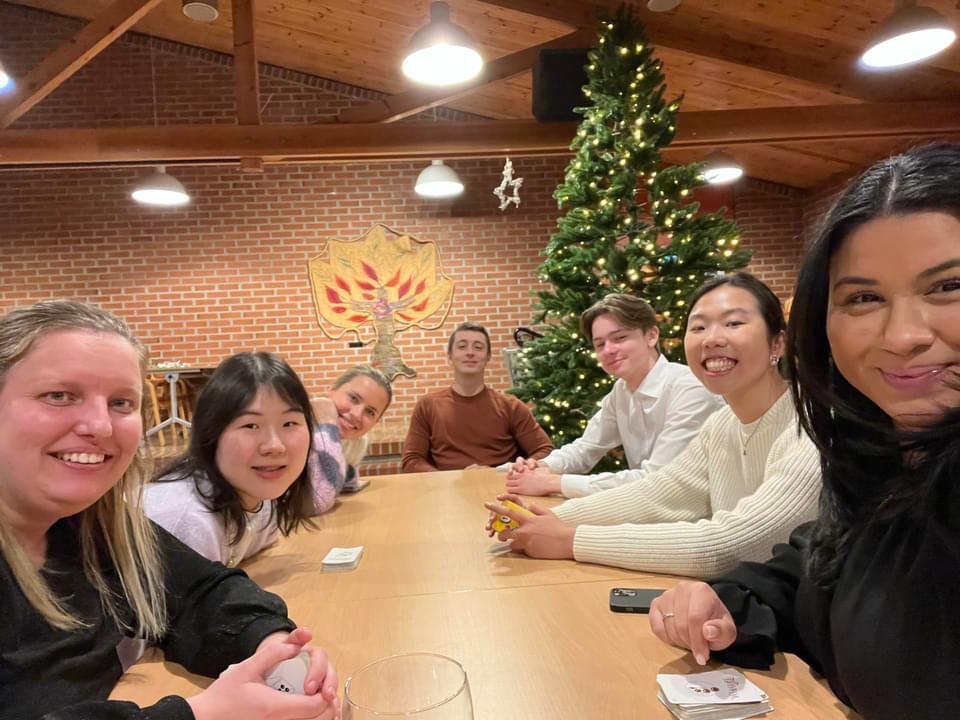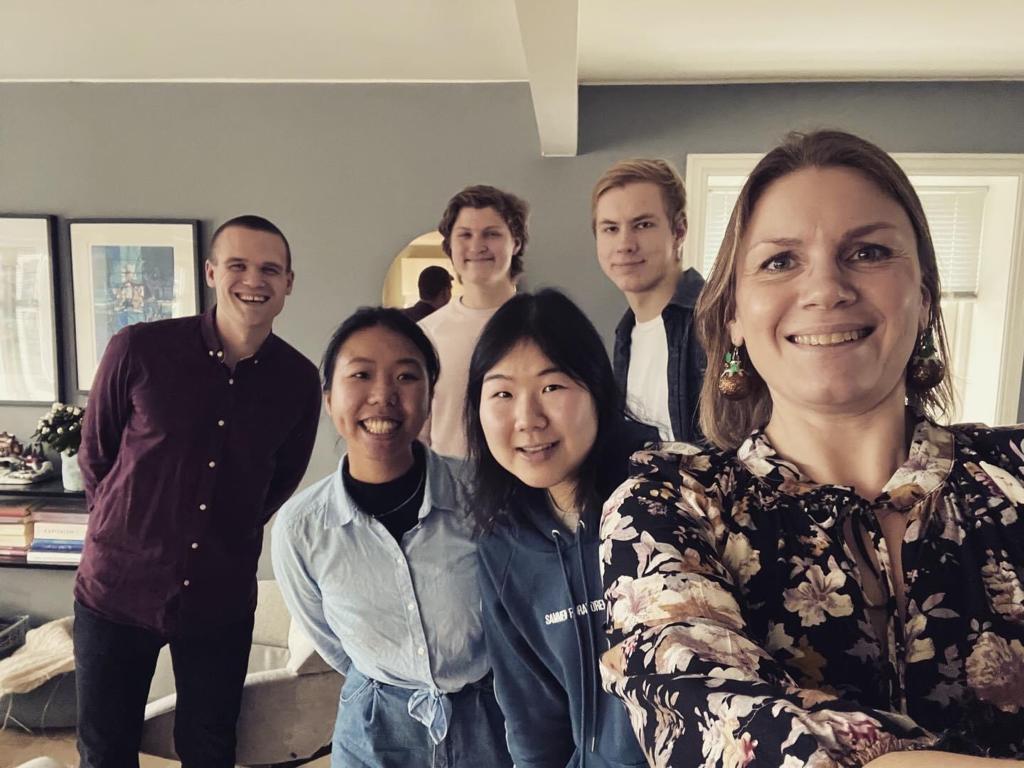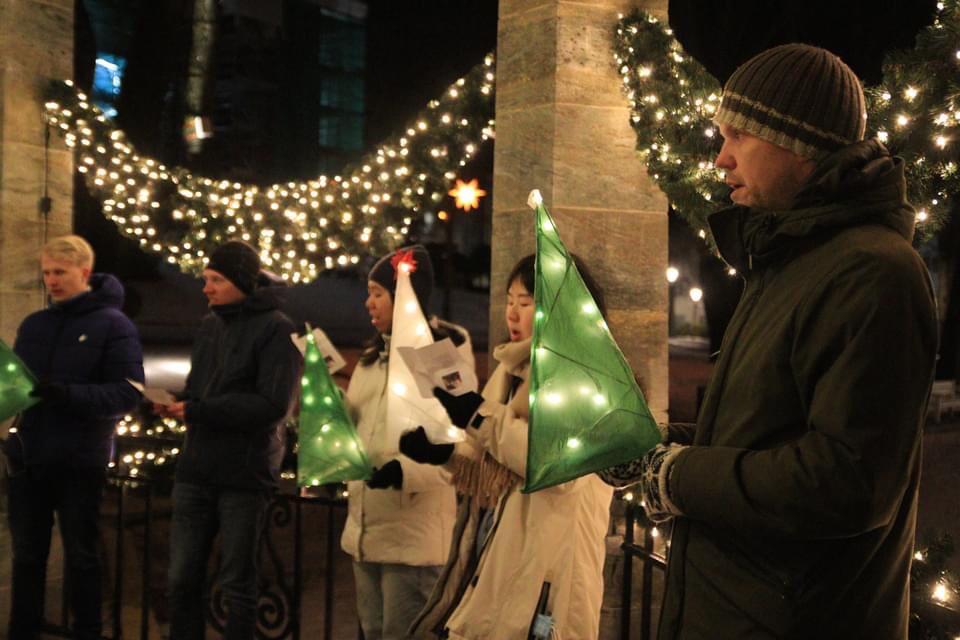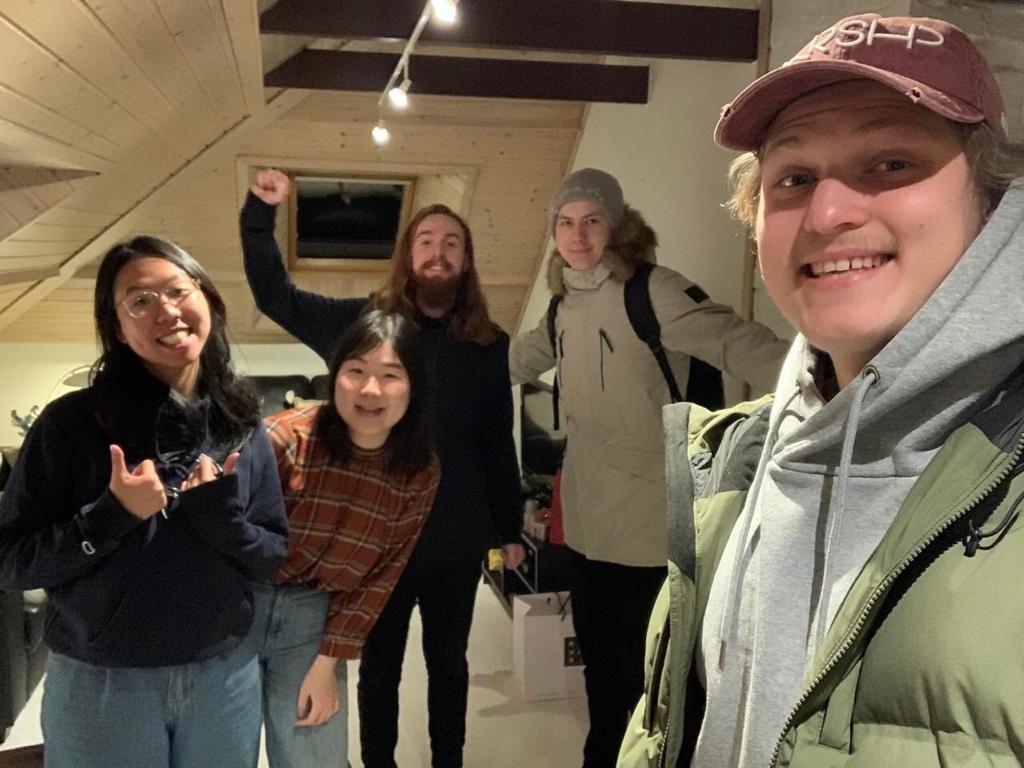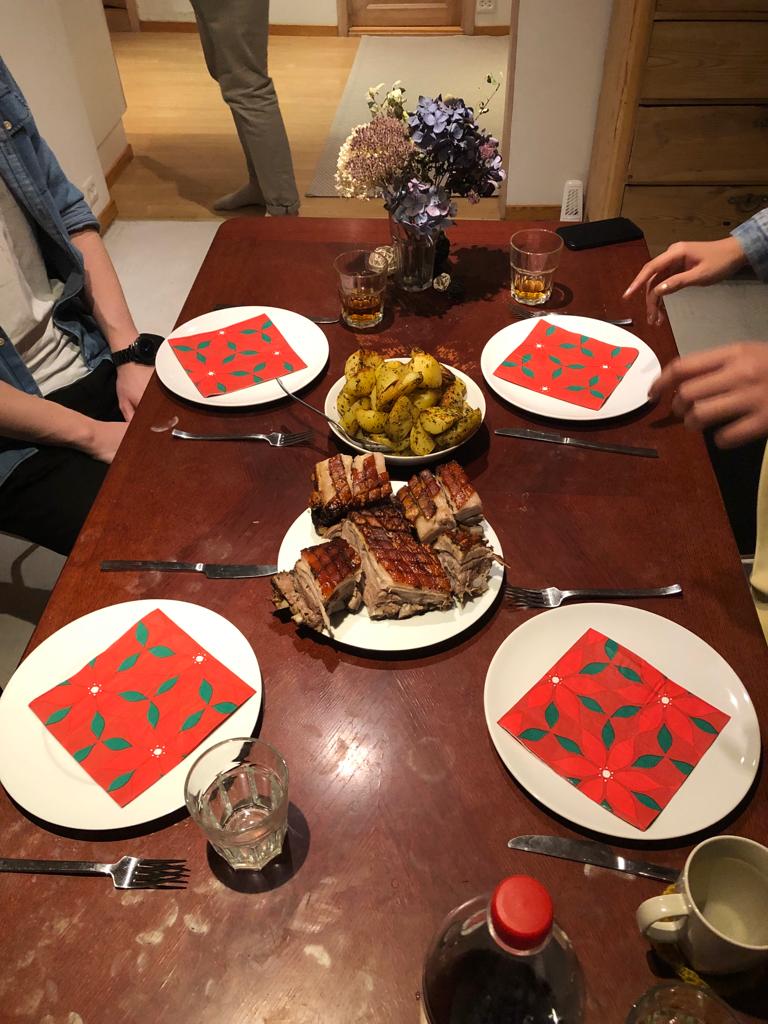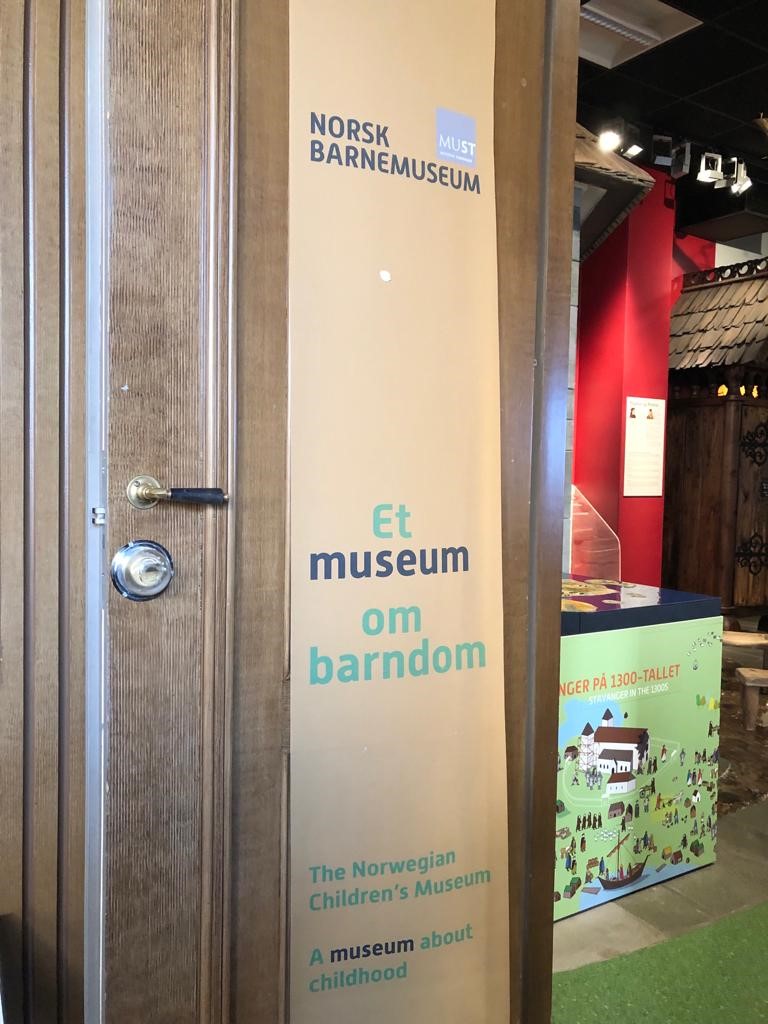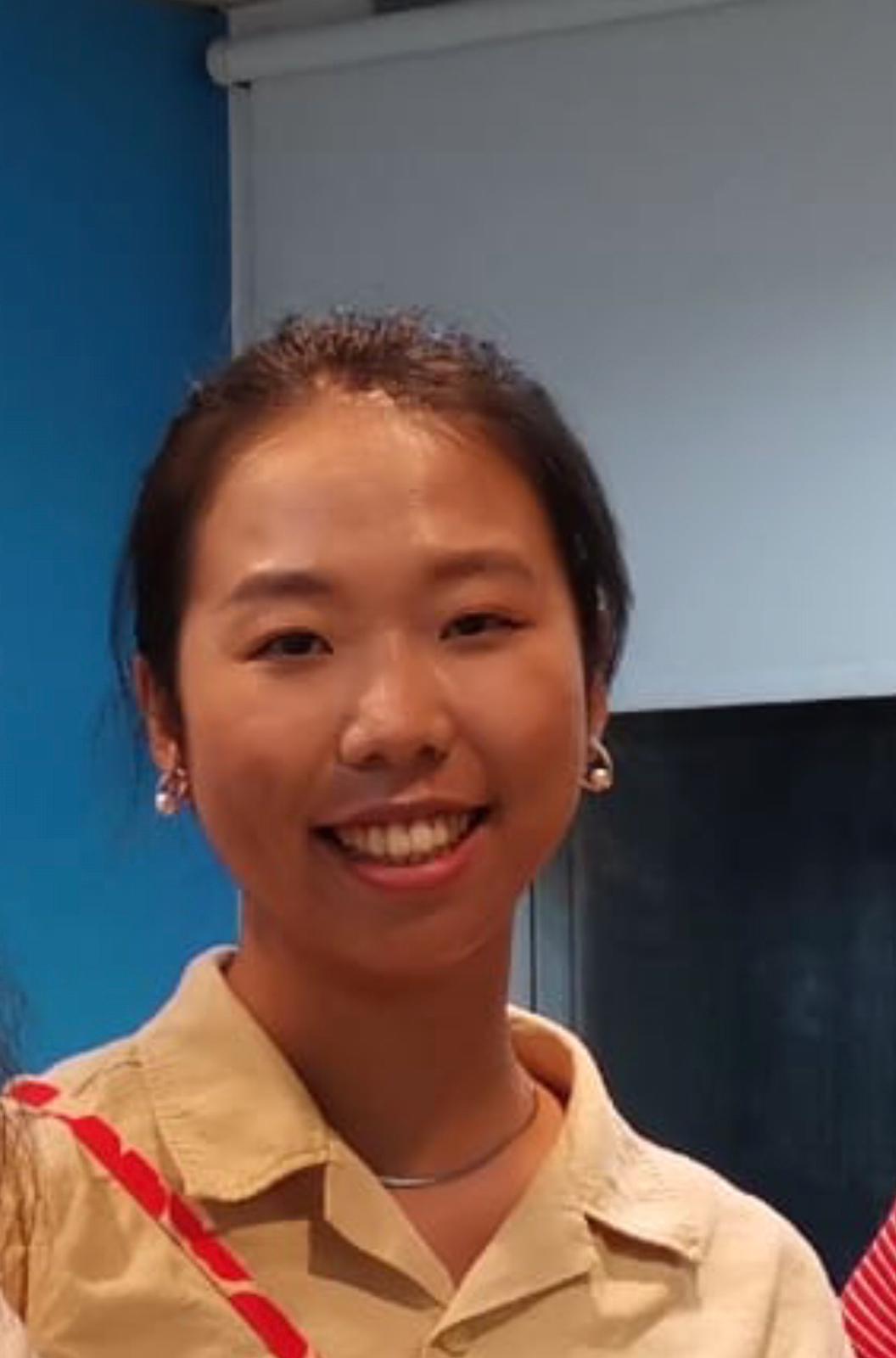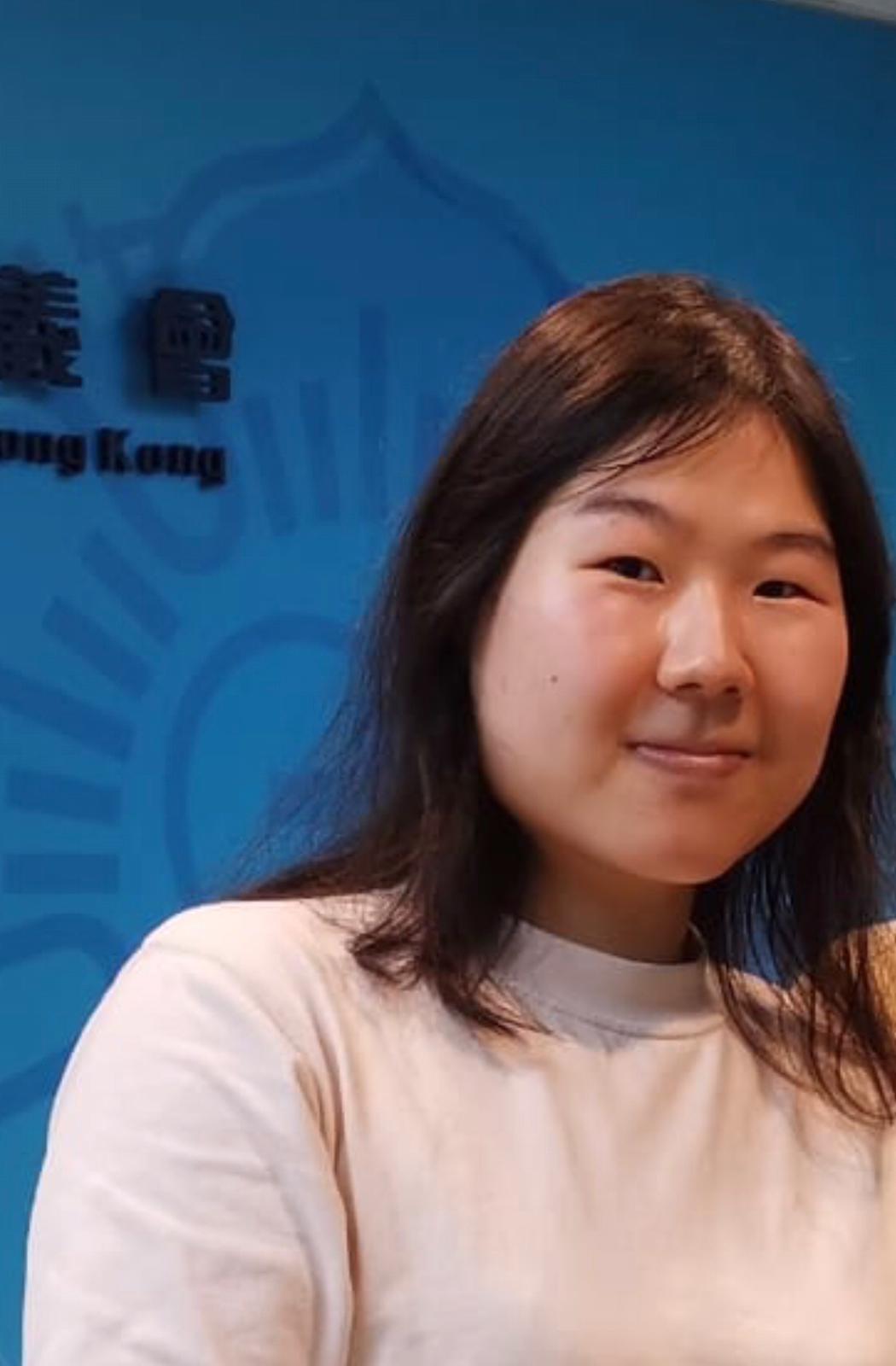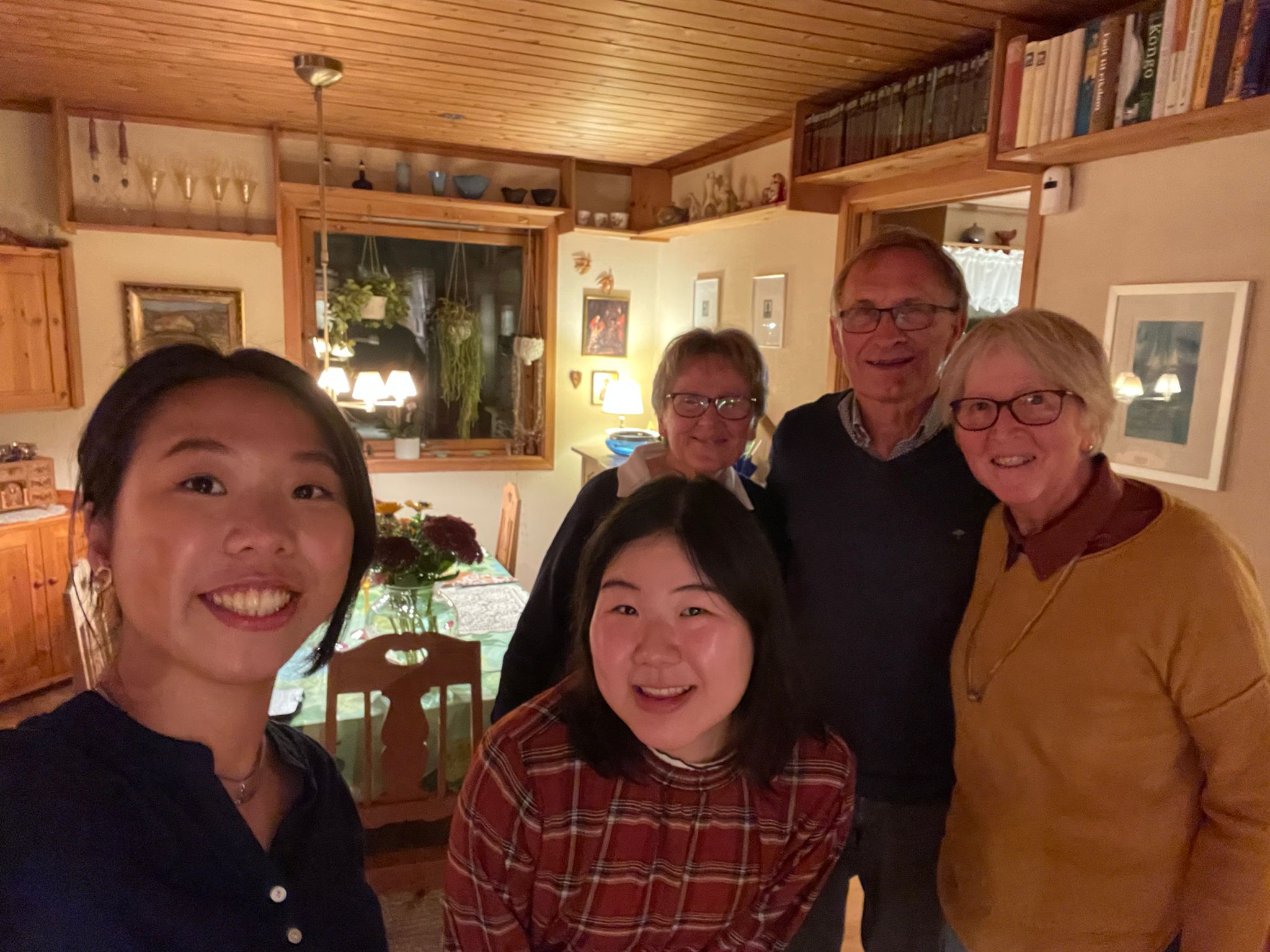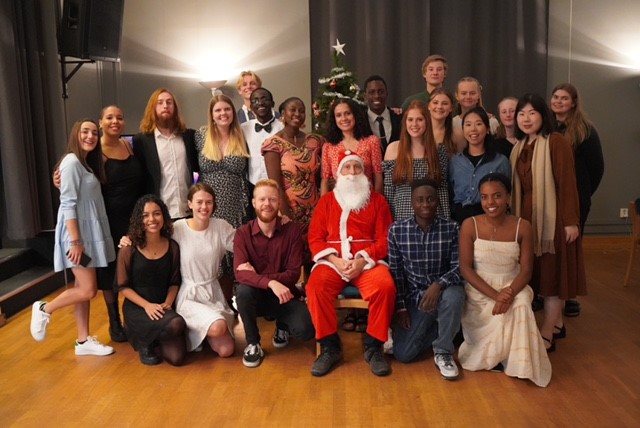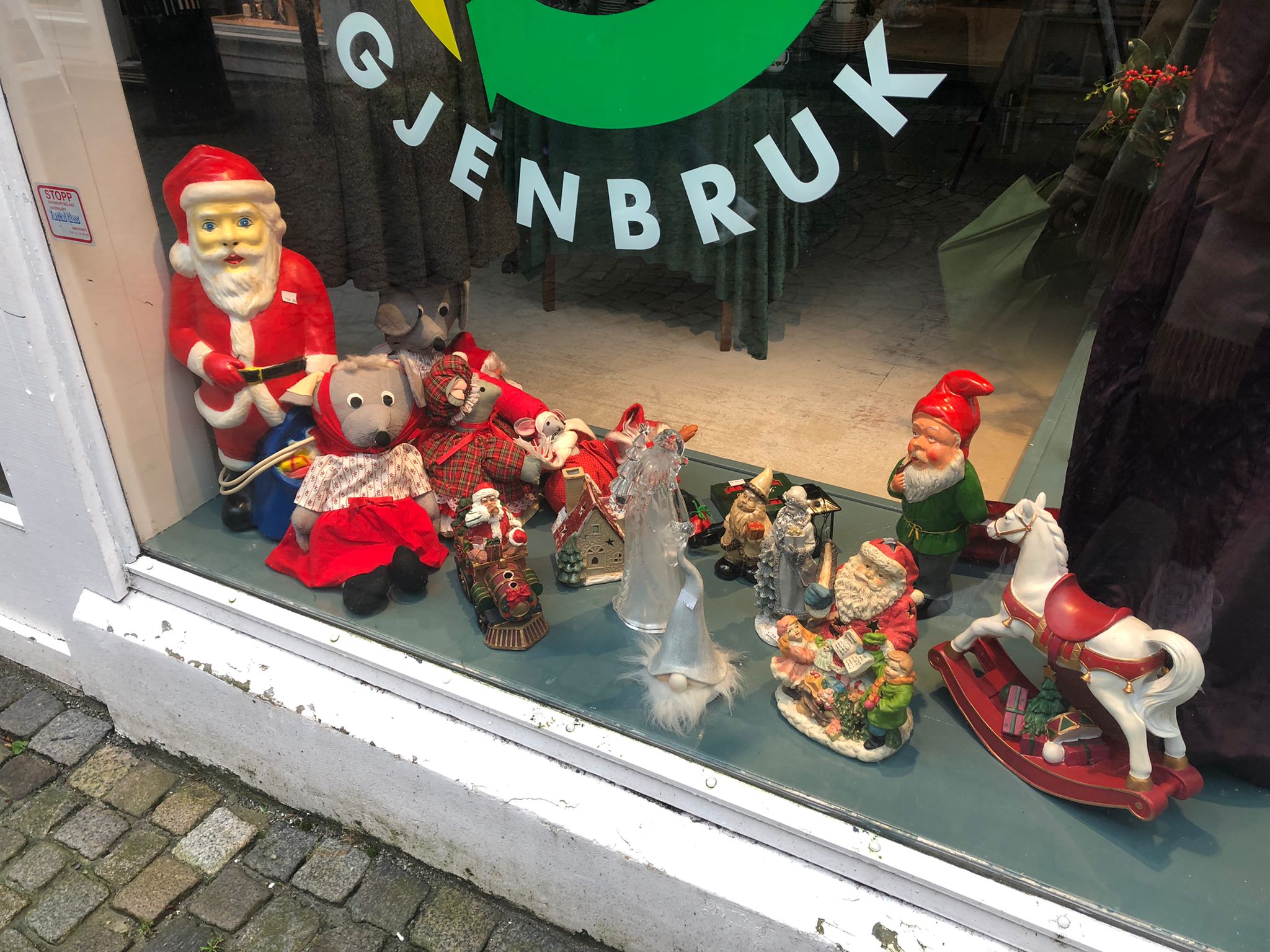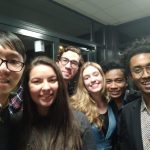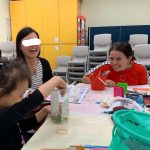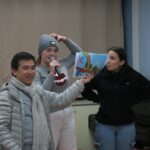Norway CONNECT
Youth work in Stavanger, Norway
Sandy, Ngai Wong
I have been in Stavanger for about 5 months. And I have been in part of different youth gatherings and it was so different than what I experienced in Hong Kong’s churches.
What I have done in Norway and how I feel:
In these 5 months, I have been to two youth camps held by The Norwegian Mission Society Youth (NMSU). I would not say I enjoy it so much but I experienced noticeably big cultural difficulties in the camps. How we discipline the youth in a Christian camp. I remembered how the youths ruined the talks and devotion. Then, how Norwegian leaders bring their concentration back. It is hugely different between Hong Kong and Norway. In Norway, the leaders would more respect them by just looking at them. I would say it was rarely happened inside Christian camps in Hong Kong.
Secondly, I am also participating in confirmation class held by a local church (St. Johannes Kirke) in Stavanger. I more like an observer at the beginning and I was so glad that the priest asked me and my partner to take part in one class. And we found that youths here enjoyed the interaction more than listening only. Therefore, churches here offer some interest groups for the youths instead of only having bible lessons. They encourage more vivid way to learn Christianity. That is a great inspiration for me to think about how Hong Kong churches could include more youth by knowing what youths want.
Feelings and thoughts for Hong Kong
Being in Norway for 7 months, I met so many kind people, especially the youth! They are friendly and willing to speak English to me which is so warm and quite challenging for them (they seldom speak English in daily). After backing to Hong Kong, I hope we could include more youth and listen to their voices in making a better church.
Society, dressing and self-confidence between Norway and Hong Kong. Could we appreciate ourselves more?
Sandy, Ngai Wong
What clothes did you wear today? What dressing style do you belong to? Has your dressing style ever been commented on by others? I am a 24-year-old Chinese female and grew up in Hong Kong, a city in East Asia. I was educated by Confucianism and collectivism deeply from my parents, schools, even society. We have been disciplined from many aspects; this article will focus on the dressing of women. I arrived in Norway in August 2021 and stay in Hald International Skole for 1.5 months. I came to Stavanger in October till now. I have been experienced the summer, fall, and winter in Norway observed how Norwegians dressed. It impressed me a lot of how women dressed among all ages.
After few months in Norway, I could see that the gender stereotypes are not that serious by my observations of hairstyle either on men or women. People here rarely comment (whatever is verbal or nonverbal) on others’ styles or looks. Society is trying to develop a gender-equal environment here. The spectrum in body image and dressing style in Norway is wide and colorful. I saw how Norwegians appreciate their body image. The obvious example is on TV shows: celebrity women show they are different but not just thin. At the same time, people are also confident about putting on many types of clothes. Therefore, we can see that there are so many dressing styles on the streets to build a border society. One more shocking thing I found; the elderly here usually wears Demin clothes. In Hong Kong, it is rarely to see an old lady to have Demin jeans.
Back to Hong Kong, what we dress is more conducted by gender stereotypes. We would consider more about so-called social value. The society always advocates ‘thin is beauty’ so women in Hong Kong see ‘keep fit is their destinate career.’ It is sad that we could not have self-appreciation. Therefore, I would like to start with my social circle to promote ‘body appreciation’ and empower our own. Since the body confidence shall not be given by others but yourself!
When we talk of gender equality, most of the people just emphasized the rights only but not the invisible thought or cultural conception. That is why women in Aisa still must be aware of their dressings, they would not dress what they want. Culture is the biggest barrier to gender equality. Gender equality is not only letting people have social rights but also respecting each other and getting the same number of choices. I am expecting people to freely choose what they would like to wear soon.
Kary Tsui
After a fruitful beginning of the internship, a strict corona measures came in December. Under the strict corona measures, there are huge impact on our internship, since different activities and future program had been changed, cancelled or postponed. There were schedule empty on late December, which including Christmas and New Year’s Eve. Apart from the affecting from the corona measures, there are different factors attributed to this situation as well. For example, Ukirke used to hold different activities between Christmas and New Year’s Eve, yet most of the youth went back home in Christmas. Although outdoors activities can still be hold under this corona measures situation, not many youths took initiatives for those activities to be taken. Therefore, the official internship work kind of have been suspended at that time. In order to tackle the situation, we have took initiative to occupy our time, including inviting Ucrew to our home and celebrate Christmas Eve with them and receiving different guests, in order to utilise our home.
After the infield, there are different activities had been arranged, yet there was a camp still got to be cancelled. In 12th February, all corona restrictions had been cancelled, it was a good news to me that our last part of internship can be filled up with different fruitful activities.
Also, we have received new challenges as well, including helping Ukirke in OnsdagApent, helping Ukirke to have a time-framed religious sharing group and attend new church to share our Christian experience. Therefore, I am looking forward to these coming days of my internship.
Observation: Space for children in Norway
Kary Tsui
My Norway journey begins with…
When I got a chance to join the exchange program to Norway which organising by Det Norske Misjonsselskap (NMS) and The Evangelical Lutheran Church of Hong Kong (ELCHK), I was already intrigued by Norway’s social system. NMS, a voluntary organization rooted in the church of Norway. It is dedicating in sharing the faith in Jesus, eradicate poverty and fight injustice. ELCHK, one of the influential church in Hong Kong, follows the commands of the Lord Jesus Christ. Our missions are proclaiming the gospel, administering the sacraments, edifying and nurturing believers and serving the community. The entire exchange program last for around 10 months, I have been stayed in Norway for 5 months, 5 more months to go. That is how a Hong Kong 24-year-old girl observes something about Norway in these 5 months.
Why Norway?
Norway is a well-known welfare state in Europe, this specifically attracted my attention and observation from a social worker perspective. As I worked with families with SEN kids in Hong Kong (SEN represents Special Educational Needs.) before I came to Norway, also I have committed to working with family. Therefore I would like to know more how Norway’s society and government attitude towards child’s policy and the children being treated. If there are any crises, a family violence or abusive situation happen in a Hong Kong family, the official regulations of the social workers are prioritising the great interest of the children and protecting them. However, several abusive cases were being reported until the tragedy had already happened to the child. Therefore, I believe how the care and concern to the kids are being delivered in ordinary days is an important indicator of a nation doing how well in child’s policy.
Macro perspectives and daily experiences
When I was undergoing my quarantine in the quarantine hotel, I checked the quarantine rule in Norway for updating purposes. Then I noticed HelseNorge, the website stated that the child and young people should have the opportunity to play, also accompanying children for outdoor activities at least a day is encouraged. It is fascinated! Despite the conducting on the actual policy, the courtesy towards children is respective and see the difference between European and Asian government.
Besides, I am aware there are several public spaces for children as well, including the rest area outside the washroom, also in the mall, parks with enough space and different playing facilities. These facilities are well-emerged with the neighbourhood, and it performs the significance of how a city focus on the well-being and the existence of children. Moreover, there are churches and restaurants not only offer nursery rooms, but also free diapers. I noticed there is a museum in Stavanger that offer maternity meeting every Tuesday, which allowed stay-home parent who has to eye-on-eye take care of their babies to have a social gathering and provide a social platform in removing the barrier, including providing mats and toys, free baby food. This is very innovative from an Asian perspective since the offered platform not only takes care of the physical need of the babies but also addresses the social need of the parents. Since it is always being ignored in Asia.
Micro perspectives and daily experiences
Apart from the hardware for children, the software: attitude in parenting and teaching also important in reflecting how the society concerning the upbringing of their kids.
From my observation, the important parenting attitude of the Norwegian family is caring and pressure-free. To compare with a Chinese family, the majority of the Chinese parent has high expectation towards their kids, the future-oriented target is the significant pressure source of the kids. While the parents in Norway care for the mental well-being of the children and focus on the multi-aspects in children’s growth. Besides, the teaching in school aspects focuses on self-management, including packing the toys after playing time, cleaning falling leaves with the teacher and cleaning the room after use. This addresses the basic ability rather than academic achievement.
Conclusion
There are two perspectives in focusing on the growth of children, one is seeing children as human becoming, another one is seeing children as fully human beings (Qvortrup, 2009). For me, it is hard to judge which one is better, since these two perspectives are being applied all the time, and it always reflects different children’s policies. Yet the measure from both Norwegian government and the Norwegian society do inspire me a lot in different ways, including how they plan the common area, how they regulate a law in balancing the difficult Pandemic times and aware the daily need for the children and how Norwegians being educated and experienced the equal attitude towards children. As an Asian, we can easily lose our focus to the current need and the being of the children, there are different expectation towards the next generation. “Do the right thing at a wrong timing” always being describing some policy on seeing children as a future human being. Therefore, I believe respect and inclusiveness in right timing are important values that society demonstrates to their children.

